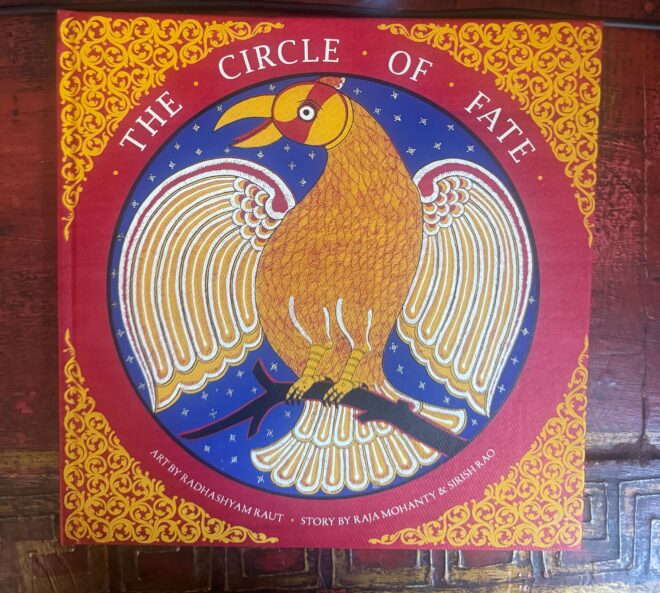
In the heights of Kailasha
where gods gather in thin air and white silence –
Garuda stands watchful,
wings bright as hammered sunlight,
while a tiny bird settles upon the highest arch,
singing – fragile, persistent, effortless –
beneath forever sky.
Within, Vishnu and Shiva speak –
voices lost in the hush of mountains –
and Garuda, admiring the peaks,
turns from the godly councils to the bird’s delicate dance.
The buffalo arrives, heavy with Yama astride,
the god of endings pausing to look at that bird –
a glance etched in eternity, unseen but heavy.
Yama, lord of those silent thresholds,
enters the sacred hall – his eyes,
embers against the frost, linger on the bird.
Garuda recognises the sign.
Pity rises, a wave,
and he makes a silent promise
to protect this flicker of life.
His talons, wind-swift, close –
lifting the small one from danger’s shadow,
leaving the gate,
riding the currents over forests
and rivers tangled in green –
to a far-off place
where a secret brook sings of shelter
and ancient stones rest undisturbed.
There, on a mossed rock,
he sets the trembling thing,
convinced he has outflown the shadow of death –
returns to his duty,
believing the song of the bird
will wander on, unbroken.
But Yama returns to the threshold –
Garuda bows, dares to ask the question
that haunts the day:
why did the night-eyed god
gaze so, and what end did he foresee?
Yama’s reply rolls like distant thunder –
“The bird, you saved,
was already claimed
far from these holy gates;
a python in a green shadow waited,
fate winding like river roots –
no talon or wing could turn that tide.”
Garuda wonders:
how distance means nothing to threads
spun tight and final –
how even mercy’s swiftest flight
cannot outrun a closing loop.
His heart aches,
realising his act sealed the pattern,
writing the final note of the bird’s song.
The wheel turns,
unseen, inexorable,
like faiths that bind and blind –
doctrines that cleave, that close eyes and ears,
till even mercy’s touch breeds grief.
We are taught to obey,
to receive received words,
ignore the world’s raw pleas,
cleave to comfort,
let mind’s clever twisting
shape a religion of certainty –
where wars erupt from stories
and truth is a distant echo.
Rewards promised,
glory for the loyal,
while the cunning
twist the holy for their gain –
yet compassion does not work in such schemes,
and the divine is not a river
tainted by fear or cruelty.
Compassion endures
not through frantic escape,
but in yielding,
allowing light to enter a heart
open to the world.
Fate weaves unaltered threads;
kindness responds,
repairs what simple obedience leaves broken.
Let empathy guide us,
even when outcomes remain hidden
and every soul is caught in a vast,
unknowable turning.
So the tale of Garuda lingers,
ancient and present –
life and compassion rising from sorrow,
the truth returning –
that light born from mercy
outshines even fate’s shadow.
In summary:
Fate may set boundaries for what mercy can do, but not for what mercy means. Even if fate reigns, mercy remains a shining, stubborn human response – an affirmation of compassion, dignity and hope, in the face of inevitability.


